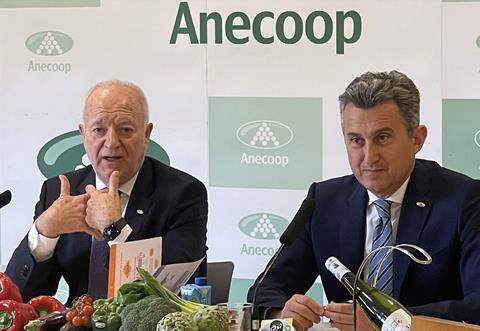The Spanish cooperative revealed its annual results for 2022/23 at its general assembly in Murcia
Anecoop has announced an increase in turnover of 2.7 per cent for the 2022/23 financial year, despite a drop in sales volumes.

At its general assembly in Murcia today (21 March), the cooperative said that it had hit a record turnover of €846.9m, with the combined turnover of all Anecoop Group companies exceeding €1bn for the first time.
Sales decreased by 14.3 per cent year-on-year to 650,978 tonnes, with lower production across almost all products as a consequence of adverse weather conditions.
Anecoop also highlighted the complicated economic and geopolitical situation that the business had endured.
“Although it is true that the situation is unfavourable for all sectors, ours is especially sensitive for many reasons,” said president Alejandro Monzón. ”The most obvious, due to the immediacy of marketing that our products require and the almost daily adjustment of production costs.
“Aware of this reality, we have focused, as always, on mitigating the short-term consequences of the numerous open fronts that impact our sector, without removing focus from the strategies that we know are necessary to progress in the medium and long term.”
The 2022/23 period had seen an increased focus on innovation and R&D in the areas of biological pest control, the integration of artificial intelligence to improve production, and the modernisation of irrigation based on digitalisation and new technologies, Monzón outlined.
Joan Mir, director general of Anecoop, revealed that the growth of the average price per kilo paid to Anecoop’s partner farmers had risen 20.7 per cent over the previous year.
He also agreed with Monzón on the importance of innovation as a lever for growth in the sector.
”The change we are witnessing is constant and has accelerated in recent years; We can only respond with innovation, with new management systems and greater efficiency,” Mir noted.
In terms of ongoing challenges, adverse weather, inflation and the increase in raw material costs, energy and the general cost of living, and ”unfair competition due to the emergence of products from third countries” were all mentioned by Mir.
“We can only face [these factors] through innovation in management and efficiency,” he added.



